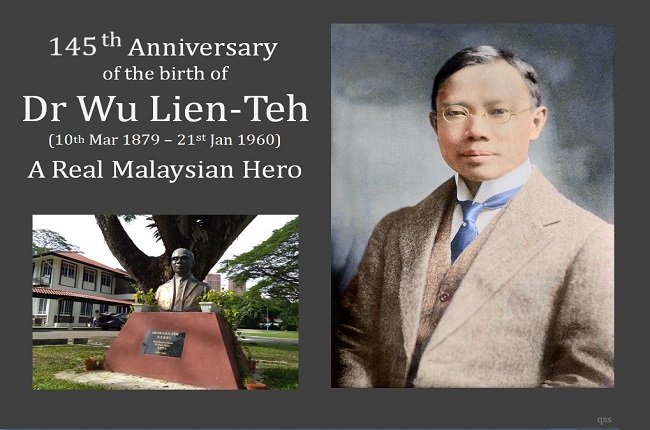
Dr. Wu Lien-teh was a pioneer in modern public health whose work during the 1910–1911 Manchurian plague became the foundation for many practices we now rely on to combat infectious diseases. He blended scientific innovation with practical solutions to prevent the spread of deadly pathogens, making him a vital figure in global health. Below, I’ll walk through seven key innovations introduced by Wu, whose influence extends to our healthcare systems today.
To explore success strategies from other fields, read this article on Traducere din engleză în română, which shows how cross-language communication can shape industries.
1. The Creation of the First Medical-Grade Mask
Dr. Wu Lien-teh is widely recognized for designing one of the earliest medical-grade face masks. At the height of the Manchurian plague, he developed a multi-layered cotton gauze mask to prevent airborne transmission of the disease.
Why This Innovation Matters
- His mask was the precursor to today’s N95 respirators, now essential in controlling airborne diseases.
- Wu’s efforts saved thousands of lives during the plague and inspired mask mandates globally.
The simple cotton mask design became a timeless tool in infection control, remaining vital through pandemics like COVID-19.
2. Introduction of Quarantine and Isolation Protocols
Dr. Wu recognized that controlling outbreaks required strict quarantine measures. His policies during the Manchurian plague introduced the idea of isolating patients and disinfecting their homes.
Impact on Public Health
- These policies are now standard practices in infectious disease control, used during outbreaks of SARS, Ebola, and COVID-19.
- Wu demonstrated that early isolation reduces transmission, making it a core principle in pandemic response strategies.
His innovative quarantine practices continue to shape the way global health officials respond to emerging infectious diseases.
3. Building China’s First Modern Public Health System
Wu Lien-teh didn’t stop with fighting a single outbreak—he transformed China’s public health infrastructure. He helped establish China’s first national quarantine service and modernized medical practices across the country.
Legacy in Infrastructure Development
- Wu’s contributions bridged Western medicine with traditional practices, helping create a more efficient healthcare system.
- His work emphasized the importance of institutional preparedness, a lesson still relevant today.
Many developing countries have modeled their public health frameworks based on Wu’s pioneering work.
4. International Collaboration in Disease Control
Long before global health organizations like the World Health Organization (WHO) existed, Dr. Wu advocated for international cooperation. He worked alongside Russian and Japanese officials during the Manchurian plague, proving that cross-border collaboration was essential for tackling pandemics.
Modern Implications
- Wu’s model of health diplomacy laid the groundwork for the global partnerships seen today during pandemics.
- The exchange of knowledge and resources among countries continues to be critical in fighting new diseases.
His advocacy for collaboration showed that health crises transcend borders, a concept at the heart of modern health systems.
5. Educational Campaigns to Raise Public Awareness
Wu knew that controlling pandemics required more than just medical treatment. He launched public education campaigns to teach citizens about hygiene, mask-wearing, and disease prevention.
Key Components of His Campaigns
- Hygiene promotion: Teaching handwashing and proper sanitation practices.
- Mask-wearing guidelines: Encouraging the public to use masks to prevent disease spread.
- Disinfection efforts: Advising the community to sanitize living spaces regularly.
Wu’s campaigns were among the first public health outreach efforts—a practice that continues to play a vital role in disease prevention globally.
6. Pioneering Autopsy Work to Prove Airborne Transmission
At a time when autopsies were rare due to fear of infection, Dr. Wu performed one on a plague victim, confirming that the Manchurian plague spread via airborne transmission. This discovery transformed the understanding of disease spread.
Influence on Medical Science
- Wu’s autopsy findings challenged existing beliefs about plague transmission, leading to more effective public health measures.
- His work emphasized the importance of scientific research and evidence-based decisions in managing pandemics.
Wu’s groundbreaking research continues to inspire epidemiologists and medical researchers around the world.
7. Lasting Global Recognition and Honors
Dr. Wu’s efforts earned him international acclaim. He became the first person of Chinese descent to be nominated for a Nobel Prize in Medicine. Many institutions and awards today commemorate his contributions to public health.
Enduring Influence
- His ideas remain influential, shaping public health policies adopted by organizations like the WHO.
- Wu’s legacy demonstrates the long-term impact of scientific innovation on healthcare systems worldwide.
Dr. Wu’s life shows us that dedication and innovation can leave a lasting mark on history, inspiring future generations of healthcare professionals.
Wu Lien-teh’s Relevance in Modern Healthcare
Today, as the world continues to battle pandemics, the contributions of Dr. Wu Lien-teh are more relevant than ever. Mask mandates, quarantine policies, and public health education—all rooted in Wu’s work—remain essential tools for disease prevention. His focus on international collaboration has become a cornerstone of modern global health efforts.
For those interested in exploring how knowledge transfer across borders influences industries, I recommend checking out Traducere din engleză în română.
Dr. Wu Lien-teh Biography
Dr. Wu Lien-teh biography explores the life of a remarkable physician and public health advocate. Born in 1879, he dedicated his life to combating infectious diseases, most notably during the pneumonic plague outbreak in Manchuria. His biography reflects not only his medical achievements but also his advocacy for public health reforms in China. This rich history includes his invention of the Wu mask, a precursor to modern respiratory protection.
Dr. Wu Lien-teh Contributions to Medicine
Dr. Wu Lien-teh’s contributions to medicine encompass a range of innovative practices and policies that have shaped public health. His efforts during the pneumonic plague outbreak saved countless lives and showcased the critical role of epidemiology. He also emphasized the importance of sanitation and hygiene, paving the way for modern public health initiatives. His legacy endures through ongoing medical research and education inspired by his work. To learn more about his impactful contributions, explore this resource here.
Dr. Wu Lien-teh Public Health
His public health initiatives significantly transformed health policies in China and beyond. As a leader in the fight against infectious diseases, Dr. Wu Lien-teh established quarantine protocols and advocated for public education on hygiene practices. His work during the 1910 pneumonic plague outbreak demonstrated the power of proactive measures. Today, his approaches continue to influence how we address global health challenges.
Dr. Wu Lien-teh Achievements
His achievements are notable milestones in the history of medicine. He gained recognition for his successful management of the pneumonic plague outbreak in Manchuria and for inventing the Wu mask, which provided vital protection against respiratory diseases. Throughout his career, he advocated for medical education and public health reform, leaving a lasting impact on healthcare practices. Dr. Wu Lien-teh achievements inspire future generations of medical professionals.
Dr. Wu Lien-teh Impact on Healthcare
The impact on healthcare is felt today, as his innovative practices laid the groundwork for modern public health strategies. His approach to managing infectious diseases emphasized the need for early intervention and community involvement. Advocacy for improved sanitation and health education has contributed to significant advancements in healthcare systems worldwide. By studying his impact, we can learn valuable lessons applicable to contemporary health crises.
Dr. Wu Lien-teh and the Pneumonic Plague
His role in managing the pneumonic plague is intrinsically linked, as he played a crucial role in one of the deadliest outbreaks in history. Appointed by the Qing government, he implemented strict quarantine measures and public health education to combat the spread of the disease. Leadership during this time not only saved lives but also advanced the field of epidemiology. The strategies employed during the plague continue to inform our responses to infectious disease outbreaks today.
Dr. Wu Lien-teh Inventions
Inventions, particularly the Wu mask, revolutionized respiratory protection in medicine. Designed during the pneumonic plague outbreak, this mask was a groundbreaking innovation that laid the foundation for modern protective equipment. His inventions reflect a commitment to safeguarding public health and enhancing the safety of healthcare workers. Today, the principles behind these inventions are evident in the masks and protective gear used during health emergencies.
Dr. Wu Lien-teh Legacy in Medicine
His legacy in medicine is marked by unwavering dedication to public health and pioneering work in epidemiology. Efforts during the pneumonic plague and advocacy for sanitary practices have left an indelible mark on healthcare practices today. This legacy continues to inspire medical professionals and public health advocates worldwide, reminding us of the importance of proactive health measures.
FAQ: Dr. Wu Lien-teh and His Innovations
Who was Dr. Wu Lien-teh?
Dr. Wu Lien-teh was a physician and public health pioneer who played a key role in controlling the 1910–1911 Manchurian plague through innovations like face masks and quarantine policies.
What is Dr. Wu Lien-teh known for?
He is known for creating the first medical-grade face mask, implementing quarantine protocols, and building China’s public health infrastructure.
How did Dr. Wu Lien-teh influence modern healthcare?
His innovations in disease prevention, research, and education have become foundational principles in public health, guiding responses to recent pandemics like COVID-19.
Takeaways from Dr. Wu Lien-teh’s Work
- Face masks and quarantine protocols were among Wu’s most significant contributions to public health, proving essential during modern pandemics.
- Wu’s emphasis on education and research demonstrated that public awareness is key to disease prevention.
- His advocacy for international collaboration highlighted the importance of partnerships in fighting global health crises.
Dr. Wu Lien-teh’s work teaches us that simple ideas can lead to groundbreaking changes in public health. His legacy continues to inspire scientists, doctors, and policymakers, reminding us that innovation and collaboration are essential to tackling global health challenges.
You May Also Like:
Big Brother VIP Kosova Live: 5 Must-See Moments Unveiled Today!







